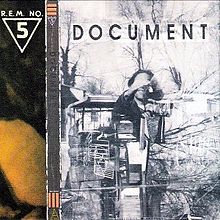
 I write this from the sunny living room of my parents’ home in Buffalo. After many tears and frustrated phone calls, I made the choice to leave New York City and hunker down with family upstate. Or rather, COVID-19 made that choice for me.
I write this from the sunny living room of my parents’ home in Buffalo. After many tears and frustrated phone calls, I made the choice to leave New York City and hunker down with family upstate. Or rather, COVID-19 made that choice for me.
I consider myself remarkably lucky, having the ability to flee the city to what’s thought of as a safer place to ride out the storm. There are thousands upon thousands of New Yorkers who simply have no other option but to stay where they are, and I hope that those folks are able to take comfort wherever and whenever they can. There’s a certain morbid sense of solidarity in knowing that we’re all in this terrifying boat together, and yet it’s hard to see the silver lining these days.
I’ve had plenty of time to keep tabs on social media and the Internet in general, and what I’ve seen has been a mixed bag of successful efforts to stay sane and productive as well as some fantastically stupid results.
Take, for example, the recent video from a group of celebrities who “came together” to sing a snippet from John Lennon’s “Imagine.” Stars like Natalie Portman, Will Ferrell, and many others each cut clips singing a line or two, and the end product was intended to be some sort of uplifting message of hope. See? Celebrities: they’re just like us. They too power through pandemics from their… multimillion-dollar mansions. The actual result of the video was, frankly, insulting. Each of the highlighted celebrities very clearly has enough money to help those in need in a matter of minutes, and instead they’re (poorly) singing a tune from their expensive living rooms. There is nothing uplifting or hopeful about that. Not to mention, John Lennon, perhaps the world’s most prolific cynic, would undoubtedly be disappointed, and would be the first to call those celebrities out.
It’s difficult to find the good news throughout the day. I’ve been paying close attention to the music industry and how it’s handled the sudden dismantling of everything it was. Ironically, despite the various ways the Internet has helped artists make music and create a name for themselves, the majority of musicians still get their income from playing live shows, something that’s obviously been slashed for the foreseeable future. Many bands have turned to live-streaming performances from their home studios or living rooms, attempting to give fans a musical experience despite social restrictions.
Yet, I can’t help but think of an interview with David Bowie from 1999, in which he discussed his thoughts on how the internet will shape the coming years. “I don’t think we’ve even seen the tip of the iceberg,” he said. “I think the potential of what the Internet is going to do to society, both good and bad, is unimaginable.”
I fear the impact this time period will have on the music industry for a whole host of reasons, but mostly because forcing something to exist online-only when it isn’t designed to work like that is… unnerving. It’s like asking the NBA to switch to operating in an exclusively virtual capacity: not at all feasible. Things will change and the industry will hopefully adapt as needed, but for now it’s a fluid situation, as is everything else.
I’m not the only one, but I find myself humming R.E.M.’s “It’s The End Of The World As We Know It.” It comes off one of the band’s most praised records, Document.
“Team by team, reporters baffled, trumped, tethered, cropped
Look at that low plane, fine, then
Uh oh, overflow, population, common group
But it’ll do, save yourself, serve yourself
World serves its own needs, listen to your heart bleed
Tell me with the Rapture and the reverent in the right, right
You vitriolic, patriotic, slam fight, bright light
Feeling pretty psyched.”
Document touches on dozens of topics, with plenty of political lyricism. It can be noted that it came out in 1987, practically smack in the middle of the AIDS epidemic – another global health crisis sweeping the country that was poorly managed by Washington. When Americans are dying, there is no time for anything else other than help. Haven’t we learned that by now?
Living in an era that’ll be written about in textbooks sounds interesting on paper, but it’s exhausting in real life. Most of us want this historical period of time to be over with as soon as possible. This is the end of the world as we know it, in a sense. Life after this pandemic will inevitably look different than it did before, as it should, and we can only hope that we’re better people for it after it’s over.
